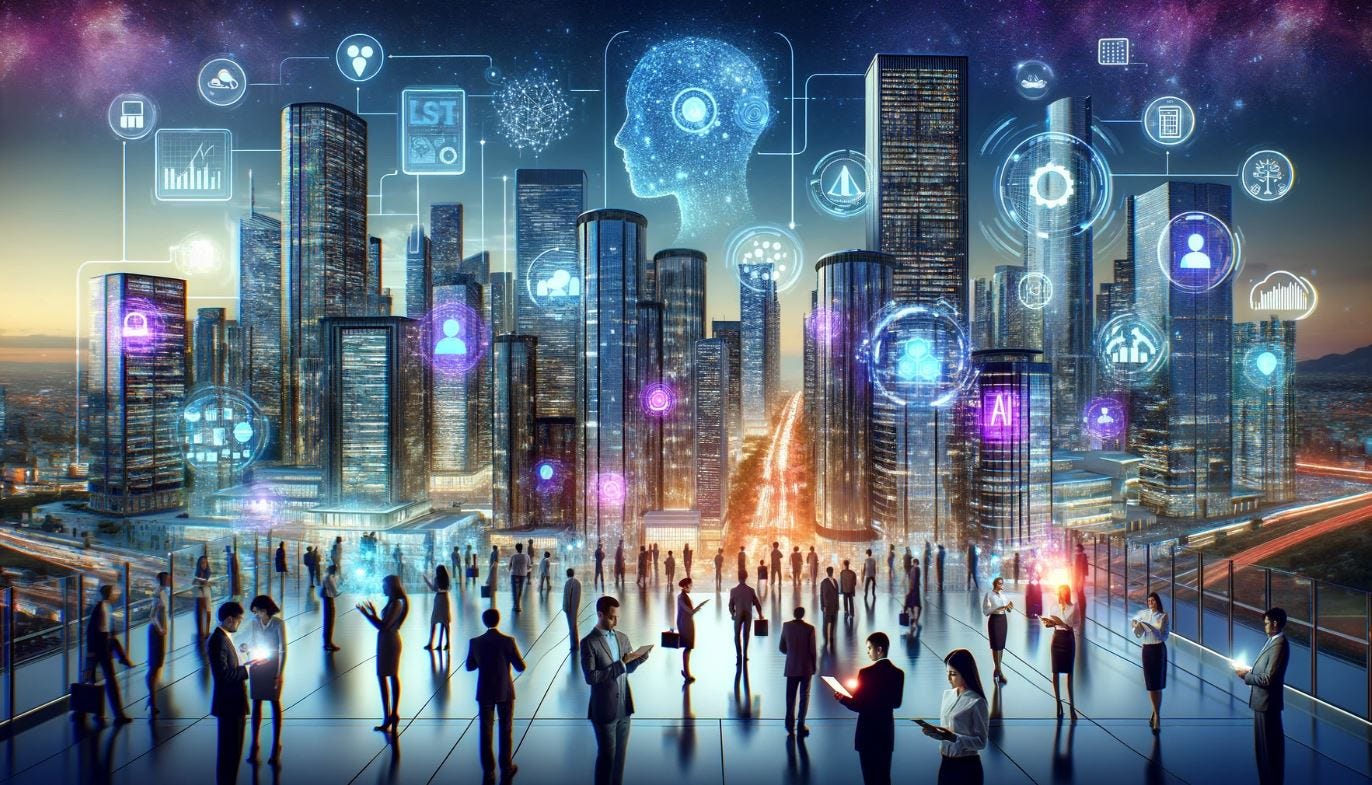AI in 2024: Navigating the New Corporate Frontier
Embracing the Future: How AI is Transforming the Corporate Landscape in 2024
Introduction:
In 2024, we're witnessing a technological evolution that's not just rapid but mandatory, marking it as a pivotal year for corporate AI integration. Across the globe, companies are deeply integrating artificial intelligence into their core processes, a trend indicative of a broader digital transformation. As a AI enthusiast, I've been closely monitoring and analyzing this ongoing AI transformation, exploring how it's reshaping efficiency, productivity, and decision-making in the corporate world. This journey into the heart of AI adoption reveals a landscape where technology and business strategies converge in unprecedented ways.
The AI Imperative:
A significant 83% of technology leaders now consider AI not as a luxury but a necessity. This is more than just a trend; it's a paradigm shift, marking a new era in corporate technology adoption. The investment in AI is skyrocketing, with 61% of tech leaders planning substantial financial injections into AI technologies over the next year. These investments are revolutionizing software development, enabling even those without technical backgrounds to build interactive queries and customize dashboards for analytics. The impact of this shift is dual-fold, profoundly influencing both IT and customer-facing roles. It's not just about adopting new technologies; it's about transforming the very fabric of business operations.
AI in Multicloud and DevOps:
In the realm of multicloud complexity, AI's role is becoming increasingly critical, acknowledged by 87% of technology leaders. For DevOps teams, AI is evolving from a tool to a necessity. It's being leveraged for enhanced threat detection, automating complex operations, and significantly reducing false alerts in code deployments. This isn't just about easing workflows; it's about redefining them entirely, introducing levels of efficiency and accuracy previously unattainable. As multicloud environments grow more complex, AI stands as the linchpin in managing and optimizing these ecosystems, ensuring that businesses can keep pace with the rapidly changing technological landscape.
Challenges and Responsible AI:
However, the journey towards AI integration isn't without its challenges. Concerns about data leakage, the misuse of intellectual property, unintentional bias, and misinformation are significant, worrying 95% of technology leaders. As such, there's a growing emphasis on 'Responsible AI'. This concept centers on ensuring compliance, secure systems, and strategic deployments, key factors in building trust and mitigating risks associated with AI. It's not just about harnessing AI's power; it's about doing so ethically and responsibly, ensuring that AI serves as a force for good and innovation, rather than a source of risk.
Workforce Transformation:
AI's transformative power extends to the workforce as well. It promises to improve workforce satisfaction, empowering nontechnical staff with the ability to make data-driven decisions. This change is extensive, affecting almost every employee in an organization, beyond the realms of IT and DevOps. It's fostering a culture where technology enables and enhances human capabilities, creating a symbiotic relationship between workers and AI tools. This transformation is about upskilling the workforce, preparing them for a future where AI is an integral part of everyday work life.
The Rise of Generative AI (GenAI):
In the United States, the adoption of AI is impressive, with 73% of companies having already integrated AI in some capacity. Leading this charge is Generative AI (GenAI), known for its accessibility and scalability. GenAI's influence is widespread, impacting various business functions and reshaping the roles of leaders and employees alike. It necessitates new skills and a deeper understanding of AI among managers and executives. GenAI's ability to process and create intelligence around large sets of complex, unstructured data is transformative, with implications for finance, tax, legal, IT, and compliance departments. It's not just a technological advancement; it's a fundamental shift in how businesses operate and innovate.
Conclusion:
As we navigate through 2024, the corporate embrace of AI is not just about staying ahead; it's about redefining relevance. AI is catalyzing comprehensive transformation, from reshaping jobs to birthing new classes of products and services. As businesses continue to embed GenAI capabilities into their enterprise applications, we're witnessing a revolution, not just a change. As an AI enthusiast, it's an exhilarating experience to document and be part of this journey, where every day is a step into a future brimming with possibilities, challenges, and innovations. The story of AI in 2024 is more than just about technology; it's about a new chapter in the corporate world, redefining the boundaries of what's possible.


